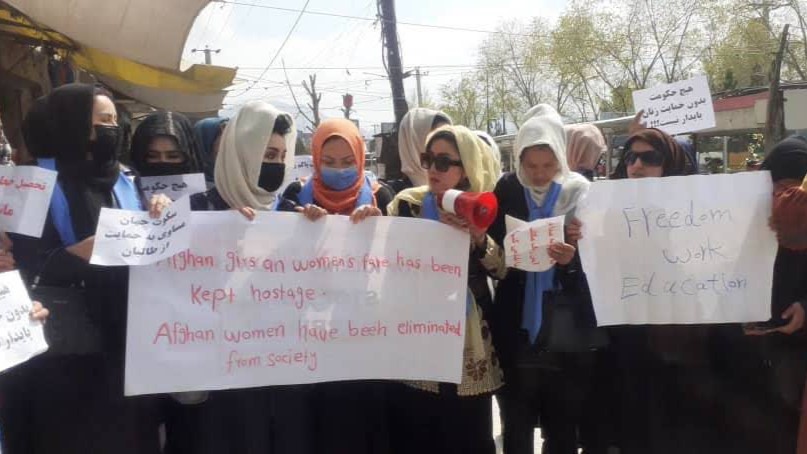UN experts have condemned the Taliban’s systematic infringement of women’s and girls’ human rights in Afghanistan, suggesting that such treatment could be classified as “gender apartheid.”
In a joint report to the UN Human Rights Council, Richard Bennett, the Special Rapporteur on the situation of human rights in Afghanistan, and Dorothy Estrada-Tanck, Chair of the Working Group on discrimination against women and girls, declared the situation of women and girls in Afghanistan as the most dire globally.
Bennett described the discrimination against women and girls as severe and potentially constituting gender persecution—a crime against humanity. He expressed concern that the de facto authorities governing Afghanistan employ systemic discrimination to completely dominate and subjugate women and girls. Estrada-Tanck added that while the backlash against women’s and girls’ rights has been observed in various regions, nowhere else in the world has there been such a widespread, systematic, and comprehensive attack on their rights as in Afghanistan.
Since taking control in August 2021, the Taliban has imposed extensive restrictions on the rights of women and girls, curtailing their freedom of movement, dress, behavior, education, employment, healthcare, and access to justice. The experts also noted a significant rise in spousal and intrafamily violence against women and girls. The limitations have dramatically impacted their involvement in political, public, economic, and sociocultural spheres.
The report showcases the resilience and strength of Afghan women, who described their daily lives as suffocating under the Taliban’s oppressive conditions. Female university students, facing a ban on education, expressed their predicament as being prisoners of their gender with no future. The report also highlighted the disturbing responses received by women seeking divorce or reporting domestic violence, indicating a lack of legal protection and gender-based violence normalization.
The experts visited Afghanistan from April 27 to May 4, meeting with a diverse range of individuals and groups in Kabul and Mazar-e-Sharif, including civil society representatives, entrepreneurs, religious leaders, teachers, journalists, UN agencies, the diplomatic community, international NGOs, and de facto officials.
The report identifies gender persecution as a deeply concerning crime against humanity occurring in Afghanistan under the de facto authorities. It emphasizes that Afghanistan is the only country where girls and young women are forbidden from attending secondary schools and higher education institutions. The experts stress the lifelong consequences of denying access to quality education, impacting not only employment opportunities but also essential services like healthcare.
Furthermore, the report highlights the restrictions on women’s mobility, employment, and access to public spaces, such as parks, gyms, and public baths. These limitations contribute to mental health issues, including depression and suicide, especially among adolescent girls deprived of education. Access to routine and emergency healthcare is also severely curtailed, exacerbating the strain on an already vulnerable healthcare system.
The absence of legal protections, the enforcement of discrimination, and the normalization of gender-based violence are grave concerns expressed in the report. The experts note the lack of a clear and predictable legal system, which perpetuates violence against women and the absence of accountability for perpetrators. The report urges the Taliban to restore and respect women’s and girls’ human rights, while calling on the international community to remain engaged and take concrete steps to support accountability for serious human rights violations in Afghanistan.





